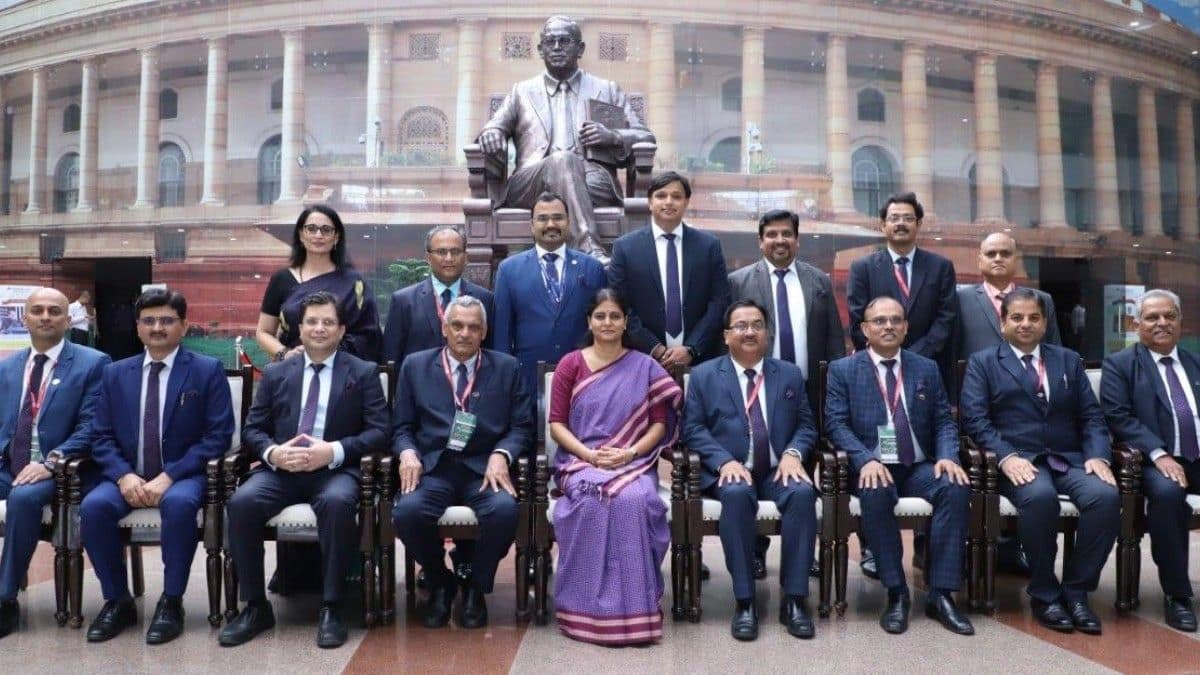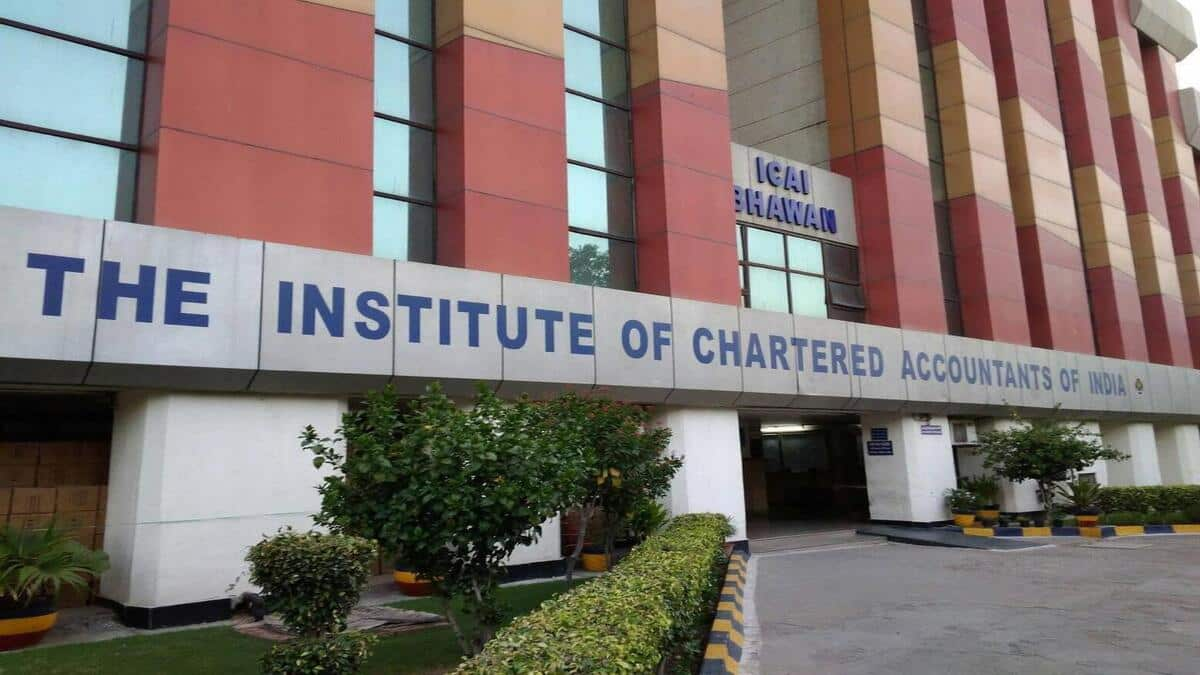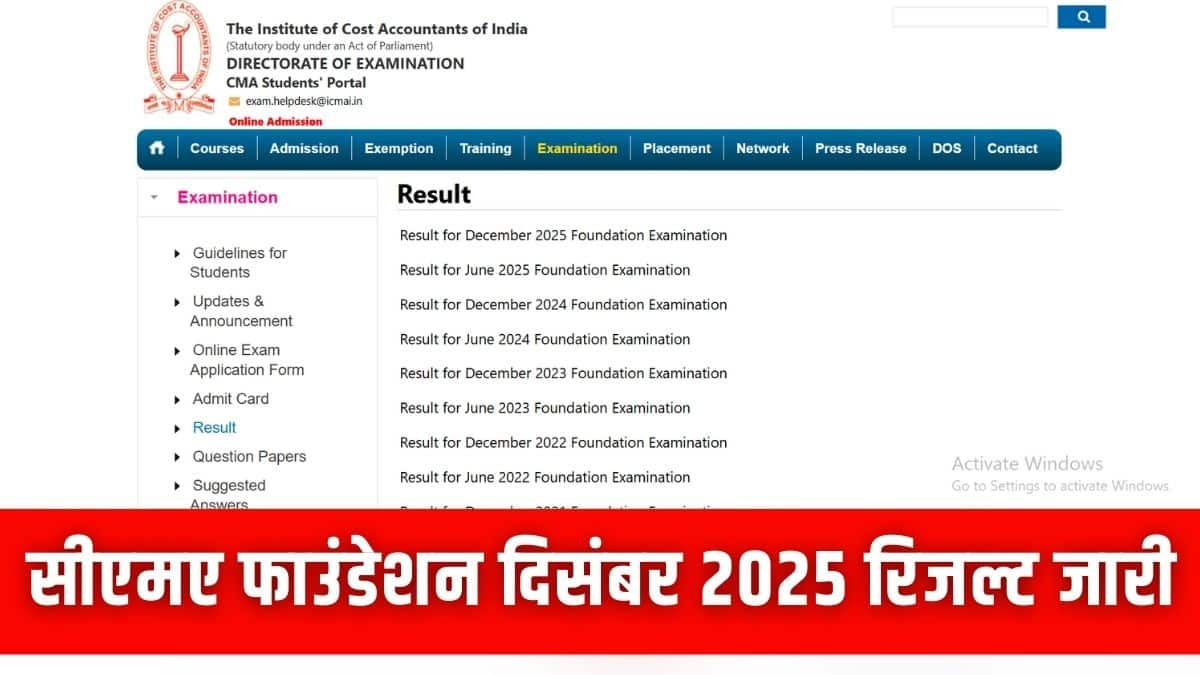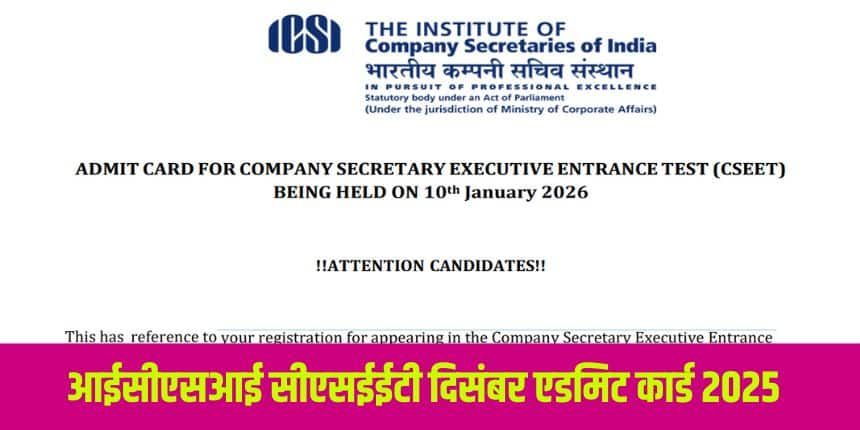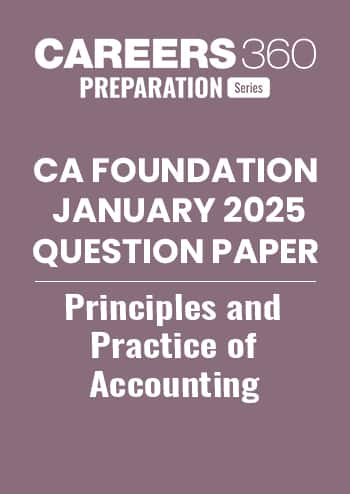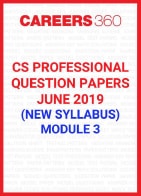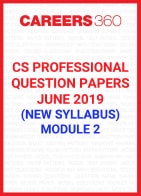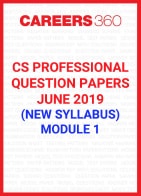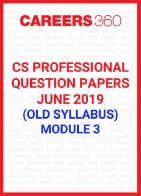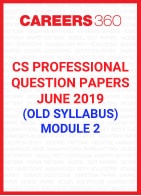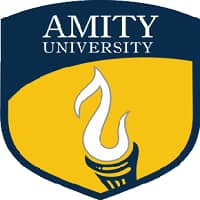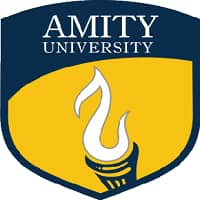- Finance & Accounts
Resources
Top Courses & Careers
Colleges
- Top Commerce Colleges in India
- Top Government Commerce Colleges in India
- Top Private Commerce Colleges in India
- Top M.Com Colleges in Mumbai
- Top B.Com Colleges in India
Download AppScan and Download the App!
- Engineering and Architecture
Exams
Colleges
Predictors
Resources
- JEE Main Admit Card 2026
- JEE Main Cutoff
- GATE Admit Card 2026
- JEE Main Syllabus 2026
- Download E-Books and Sample Papers
- Compare Colleges
- B.Tech College Applications
- JEE Main Question Papers
Download AppScan and Download the App!
- Management and Business Administration
Colleges & Courses
Predictors
Resources
- Top MBA Entrance Exams in India
- CAT Result 2025
- XAT Result 2026
- IBSAT Mock Test
- Download Helpful Ebooks
- List of Popular Branches
- QnA - Get answers to your doubts
- IIM Fees Structure
Download AppScan and Download the App!
- Medicine and Allied Sciences
Colleges
Predictors
Resources
- NEET Syllabus 2026
- NEET Exam Date 2026
- NEET Cut off
- NEET Counselling 2025
- Download Helpful E-books
- QnA - Get answers to your doubts
Download AppScan and Download the App!
- Law
Colleges
Predictors & E-Books
Resources
- Compare Law Collages
- QnA - Get answers to your doubts
- Careers360 Youtube Channel
- CLAT Syllabus
- Free CLAT Practice Test
Download AppScan and Download the App!
- Animation and Design
Predictors & Articles
Colleges
Resources
- NIFT Cutoff 2025
- NID Cutoff 2025
- NIFT Fees Structure
- Free Design Sample Papers
- Free Design E-books
- List of Branches
- QnA - Get answers to your doubts
- Careers360 Youtube channel
Download AppScan and Download the App!
- Media, Mass Communication and Journalism
Colleges
Resources
- Free Ebooks
- Free Sample Papers
- List of Popular Branches
- QnA - Get answers to your doubts
- Careers360 Youtube Channel
Download AppScan and Download the App!
- Computer Application and IT
Colleges
Quick Links
- MCA
- BCA
- Information Technology Courses
- Programming Courses
- Web Development Courses
- Data Analytics Courses
- Big Data Analytics Courses
Download AppScan and Download the App!
- Pharmacy
Colleges
Resources
- GPAT Result
- GPAT 2025 Admit Card
- GPAT Question Papers
- B. Pharma
- M. Pharma
- Free Ebooks
- Free Sample Papers
- Careers360 Youtube Channel
Download AppScan and Download the App!
- Hospitality and Tourism
Colleges
Resources
- Competition
Resources
Upcoming Events
Other Exams
- TNPSC Group 4 Exam
- UPSC CMS Exam
- UPSC IFS Exam
- UGC NET Exam
- RRB NTPC Exam
- IBPS PO Exam
- IBPS Clerk Exam
- SSC GD Constable Exam
Download AppScan and Download the App!
- School
Exams
Top Schools
Products & Resources
NCERT Study Material
- NCERT Notes
- NCERT Books
- NCERT Syllabus
- NCERT Solutions
- NCERT Solutions for Class 12
- NCERT Solutions for Class 11
- NCERT solutions for Class 10
Download AppScan and Download the App!
- Study Abroad
Colleges
Top Countries
- Arts, Commerce & Sciences
Colleges
Upcoming Events
Resources
- E-Books and Sample Papers
- CUET College Predictor
- IIT JAM Exam Dates 2026
- CUET PG Cut Off
- IGNOU Exam Form
- CUET Syllabus
- CUET Counselling
Download AppScan and Download the App!
- Learn
Engineering Preparation
Medical Preparation
Law Preparation
MBA Preparation
Download AppScan and Download the App!
- Online Courses and Certifications
Top Streams
Specializations
Resources
Top Providers
- Coursera Courses
- Udemy Courses
- Edx Courses
- Swayam Courses
- upGrad Courses
- Simplilearn Courses
- Great Learning Courses
- View All
Download AppScan and Download the App!
Commerce
10500+
Colleges
40+
Degrees
21201
Courses
11
Exams
916
Certifications
Discover stories
for every phase of your academic journey from exploration to admission.


CA Inter Result Jan 2026: Date, Direct Link, Pass Percentage, Toppers
Sansar Singh Chhikara . 1 week ago
The Institute of Chartered Accountants of India (ICAI) will declare the CA Inter Jan 2026 results tentatively in the first week of March 2026 at its official website - icai.nic.

Watch how we underline the importance of informed choices that help shape academic and career success.
Play S2 E4Stay informed
with the latest news in the space of Commerce.



Key Commerce Exams
Find Important information to understand each exam better
Ready, set, practice!
Dive into a trove of downloadable sample papers! We've curated a massive library covering a wide range of exams, so you can find exactly what you need. Get a head start on exam success!




Ditch the Spreadsheet scramble, Find Your Dream College
Compare colleges and courses side-by-side. See what matters most to you, from academics to campus life, and make an informed decision about your future.



Up-skill for success in a changing world
Fast-track your career with online degrees & certificates designed for flexibility and industry relevance.

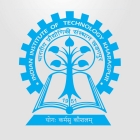
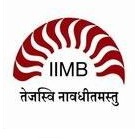


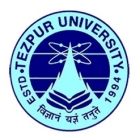


Question & Answers
1 Million+ Questions answered by the student community within 24 hours each
IIBMS Mumbai 
27 Jan'26Shankha Ghosh 


21 Jan'26Anurag Reddy 

21 Jan'26Nikita Shaw 

30 Jan'26Labhanshi Kaim 


27 Jan'26Varunika Verma 


28 Jan'26
Got a question? Don't let it linger!
Post your question and tap into the collective wisdom of our community. Subject matter experts and fellow learners are ready to offer insights. Watch your curiosity transform into crystal-clear understanding.



Study Abroad made easy
Unleash your potential on a global scale! Launch Your Global Journey with us and embark on an enriching adventure in international education.









Top Colleges Accepting Admissions
Time is ticking! Explore colleges actively accepting applications and take the first step towards your dream education
Amity University-Noida B.Com Admissions 2026
Among top 100 Universities Globally in the Times Higher Education (THE) Interdisciplinary Science Rankings 2026
ICFAI University Tripura B.Com Admissions 2026
Awarded as the most Promising brand | Meritorious Scholarship available
Amity University-Noida M.Com Admissions 2026
Among top 100 Universities Globally in the Times Higher Education (THE) Interdisciplinary Science Rankings 2026
VIT Chennai BBA Hons./B.Com Hons. Admissions 2026
#14 in India by NIRF Ranking | Institution of Eminence by Govt. of India | Scholarships Available | Highest CTC 1 Crore
Chandigarh University Admissions 2026
NAAC A+ Accredited | Among top 2% Universities Globally (QS World University Rankings 2026)
Ahmedabad University | BCom (Honours) Admissions 2026
UGC recognised University | NAAC 'A' Grade | Merit & need-based scholarships available | Early Admission Round 6 Closing on 16th Feb’26
Shape Your Future: Explore Rewarding Career Paths
Shape the future with a fulfilling career in Commerce. Dive into our comprehensive resources to discover your perfect fit.

Account Manager
An account manager performs a dual role in business by handling relations with particular clients and manages the sales activity. He or she not only gives ideas that generate sales but is also responsible for handling any grievances a customer might have. He or she makes beneficial relationships with their clients and keeps a record of other beneficial contacts.
An individual looking for a career as an account manager needs to be good at serving clients and the sales process. Key responsibilities include collecting all the necessary information about their clients such as identification documents. He or she assists in data processing and analysis, counter complaints, and identify the trends of the industry.

Bank Probationary Officer (PO)
A Bank PO is an entry-level position in the banking industry, with a probationary period alongside training. This helps candidates to handle key banking functions such as customer service, loan processing, and basic financial operations. Individuals are also required to address customer issues, manage certain branch activities, and ensure adherence to banking regulations.
The role requires the individual to have strong leadership qualities, financial understanding and good communication skills.

Certified Management Accountant
Are you searching for what is CMA? CMA: Certified Management Accountant, a career as Certified Management Accountant may sound similar to chartered accountant. Candidates can pursue certified management accountant course or CMA course with specialization in financial planning, analysis, control, decision support, and professional ethics.
Certified management accountants work inside organisations of all sizes, industries, and types, including manufacturing and services, public and private enterprises, not-for-profit organisations, academic institutions, Government entities and multinational corporations worldwide. Pursuing a course in financial management can go a long way in establishing a successful career path as certified management accountant.

Entrepreneur
A person who starts a new firm with an idea and takes on the majority of the risks and benefits is referred to as an entrepreneur. The entrepreneur is usually regarded as an innovator, a source of innovative approaches, products, services, and business models. An entrepreneur is an initiator, a challenger, and a driver who creates something new, either an initiative, a business, or a company.
In a career as an entrepreneur, he or she is at the beginning of a venture, project, or activity. The entrepreneur might not be the ideator, but he or she is definitely the one that decides to make that idea a reality. There are entrepreneurs behind every business in the country, no matter what the size and scope such as Coca-Cola, Microsoft, Facebook, Amazon, and McDonald's.

Robotics Engineer
In a career as a robotics engineer, an individual is responsible for creating robots and robotic systems that are able to perform duties that humans are either unable to complete or prefer not to do by themselves. We have all witnessed or been part of debates like, “Will robots replace humans?” They may or they may not but, one thing is for sure a robot comes into existence due to the tireless efforts of robotics engineers.
The field of robotics is very exciting and if you wish to create something as good as a humanoid robot or a pre-programmed robot, then choosing the field of robotics engineering is the right choice for you. This field is booming at the moment. An individual in the robotics career path is putting in efforts to enhance the robot mechanism and you can be one of them too. Students can pursue several robotics engineer courses, such as B.Tech in Mechatronics Engineering, and B.Tech in Robotics Engineering to opt for a robotics engineer career path.
Here, in this article, we will discuss the details about a robotics career path, such as where robotics engineers work, robotics engineer skills, robotics engineer courses, robotics engineer certifications, robotic engineering programs, robotics engineer jobs, how to become a robotics engineer after 12th or how to become robotic engineer after 10th.
Machines have made our lives easier than before. Have you ever desired to have a robot to do some of your house or work chores? Do you get fascinated about robots or robotics systems and think about how they are made and how it is functioning or what systems must have been used to make them?

Accountant
As an accountant, one is required to focus on managing the account books and look after key financial statements such as balance sheets and profit and loss accounts. In some roles, accountants are also required to conduct audits, prepare tax-related reports and offer financial insights to support business decisions.
The individual is also handles tasks such as payroll processing, calculating taxes, and supervising daily transactions. One of the key responsibilities of an accountant is to ensure that the records are accurate, complete and according to the rules.

Product Development Manager
If you think you have a good knowledge of the business world. If you think you can understand consumer needs and find an opportunity to create a potential product without dealing with the monotonous work then you can enter an organisation as a product development manager.
Working on the development of new products is an interesting field to work in and if it interests you then you can become a part of it. Product management is a key function that ensures the delivery of high-quality products. A career as a product development manager involves strategy, execution, and user understanding.
The Product Management varies as per organisation and assigned responsibilities. In some organisations, the strategy is planned by executives without involving the product development manager. He or she is directed about it. While in some other companies, there is a group of product development manager who executes daily strategy and research.
In larger organisations, the strategy-making is left to executives while the product development manager is responsible for execution, and user research. A career as a product development manager is often complicated as the decision-making responsibility varies as per the organisation.
The Product Development Manager has the three prime responsibilities strategy, execution, and user understanding. There are instances when the product development manager gives instructions for all three responsibilities.
There are also those instances when he or she has to take instructions for all three responsibilities to effectively perform product management. The product development manager is more like a facilitator who ensures the smooth delivery of the product. In this article, we will discuss in detail how to become a Product Development Manager in India, skills, and Product Development Manager eligibility.

Bank Clerk
A bank clerk is often the first person customers meet when they visit a bank. They play a key role in handling daily operations—assisting with transactions, updating records, and ensuring smooth customer service.
Whether it’s managing cash at the counter or supporting departments like loans and securities, bank clerks keep the branch running efficiently. Their work also involves data entry, maintaining financial records, and following banking regulations. If you are detail-oriented, good with people, and want a stable job in the banking sector, becoming a bank clerk could be the right choice for you.

Data Analyst
In a career as a data analyst, individuals translate the data that is collected by the company from numbers into English. A data analyst examines data to find significant insights about a company's customers and potential uses for the information in problem-solving. Data analytics is frequently referred to as a method of analyzing data sets to make any conclusions based on the information provided with the use of specialist software. People who pursue careers as data analysts acquire, examine, and perform statistical analysis on large amounts of data.
The data analyst job description includes figuring out how to provide data to respond to questions and resolve issues. Students can pursue B.Tech in Data Science and Engineering, B.Tech in Computer and Information Science to opt for a data analytics career path. Data processing has developed with the growth of computers and an increasing drive toward technical enhancement. Here, in this article, we will discuss the data analyst career path in India, how to become a data analyst, the data analyst course, what a data analyst does, data analyst skills, data analytic jobs, and data analyst career growth.

Risk Management Analyst
When it comes to running a business there are several risks involved. Larger the company, the larger the scale of risks. Therefore, in order to help the company in preventing from undergoing major losses a risk management analyst is hired. Career as risk management analyst involves taking into consideration all the financial operations as well as the operational costs involved in the functioning of the company or the organisation. After that, he or she is supposed to analyse them and consult the organisation or financial institutions, wherever they are working, to take calculated risks. Organisations have become more careful about their investments, therefore, now jobs for risk management analysts are opening. If you want to be someone who can assist big organisations in managing their risks you can become a risk management analyst.
Risk management analysts, also called risk managers, help companies assess the number of financial risks involved in acquisitions and operational costs. In a career as risk management analysts, individuals such as banks and investment companies, work for financial institutions. In addition, some experts work as consultants and go from business to business assessing possible risk factors. Incorporate accounting offices, other risk managers operate and concentrate on recognizing risk factors at different store locations.

Credit Manager
A credit manager plays a key role in a company’s credit process. They assess clients’ creditworthiness, set credit limits, and discuss terms to ensure smooth, compliant credit granting. Their goal is to protect the company while helping increase revenue.
Credit managers also track clients’ payment patterns to reduce credit risk and manage the accounts receivable portfolio. They resolve disputes and handle faulty accounts. To succeed, credit managers develop and enforce credit policies that keep the business financially healthy.

Quality Controller
A quality controller plays a key role in industries like software development and manufacturing. In software, they test products, report bugs, and ensure issues are fixed by the development team. In manufacturing, they spot defects in products and send them back for corrections since fixing during assembly isn’t possible.
Quality Controllers read blueprints and product specs and understand the entire production process—from raw materials to finished goods. They know how every person and machine fits into the workflow.
Explore our other offerings
Explore valuable tools & resources to support your academic journey, from high school success to achieving your dream college and beyond



Student Community: Where Questions Find Answers



